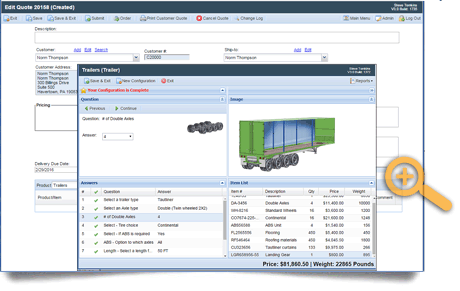

So, we have a sales order set up in the system and there are a few vectors that need to be keyed into the order to drive pricing. But for these examples, I’m just going to use sales. Now this supplies the pricing logic, or determination is the same on the AR, accounts receivable side and the accounts payable side. So, what I’ll go through is a typical sales order. So, before we go into the actual system, and demonstrate this, I just want to make sure that it’s probably easier on a slide deck to explain how prices are determined in SAP. So, I’ll go through a couple of examples of that. And you can call down on this agreement over a period of time. There’s a number of names of it, but effectively it’s a long-term agreement with a business partner. Generally blanket agreements long-term supplier entrants, with either your customers and suppliers, so there are other names a blanket agreement could be called, like a call off-order, or blanket order. Now blanket agreements is a very handle tool if you’re aware of what it can actually accomplish. We’ll also talk about blanket agreements. So with so many pricing mechanisms available within SAP we, you need to be aware of how it determines through a hierarchy the final price that will be applied on that document. So you’re aware, what are the parameters that are required in order to apply these types of prices.Īnd then what we’ll also talk about is the hierarchy of pricing, and how does SAP determine the price on a given document. Then we’ll go through and configure some of those and set up some conditions around it. So as I was saying, how does the SAP Business One handle item pricing? So, what we’ll do is go through some of the pricing types that are available in the SAP. Okay, so these are the topics that we’re going to cover. So we’re just creating a bit of awareness so you can take this back to your business and see if it can be applied to your own system. And today is a demonstration of all the available options or some of the available options around pricing within SAP Business One. Now, most organizations that use SAP Business One would have some pricing requirements that would need to be set up in the system. I’m James Rodda and the topic for today is mastering item pricing and blanket agreements. TRANSCRIPT – SAP Business One Tutorial: Item Pricing and Blanket AgreementsĪlright, so good morning everyone and welcome to this Leverage Technologies webinar for SAP Business One. Material Requirements Planning in SAP Business One.
#Sap business one price how to#
How to allocate User Licenses in SAP Business One.
#Sap business one price pro#

The integrated CRM module features tools to help you get leads, convert deals and, generally, increase your revenues month to month. The result is more accurate forecasting and insights, and in return, improved business performance.
#Sap business one price manual#
This setup nurtures transparency your key people understand their reports can be quickly accessed and assessed for accuracy.Īutomation and integration assure data integrity are kept and manual errors avoided. Data is updated in real time and synced across devices. The ERP allows you to keep tab of all your processes in one location. resources anyone with permission can quickly access the data they need or share information with other teams inside the system.

The ERP acts as a single system for your bookkeeping, CRM, procurement, warehouse management and reporting and analytics. SAP Business One centralizes all your key data and processes, allowing for smoother financial, administrative and operational management. The main benefits of SAP Business One are its rich feature set, general usability and customization.


 0 kommentar(er)
0 kommentar(er)
